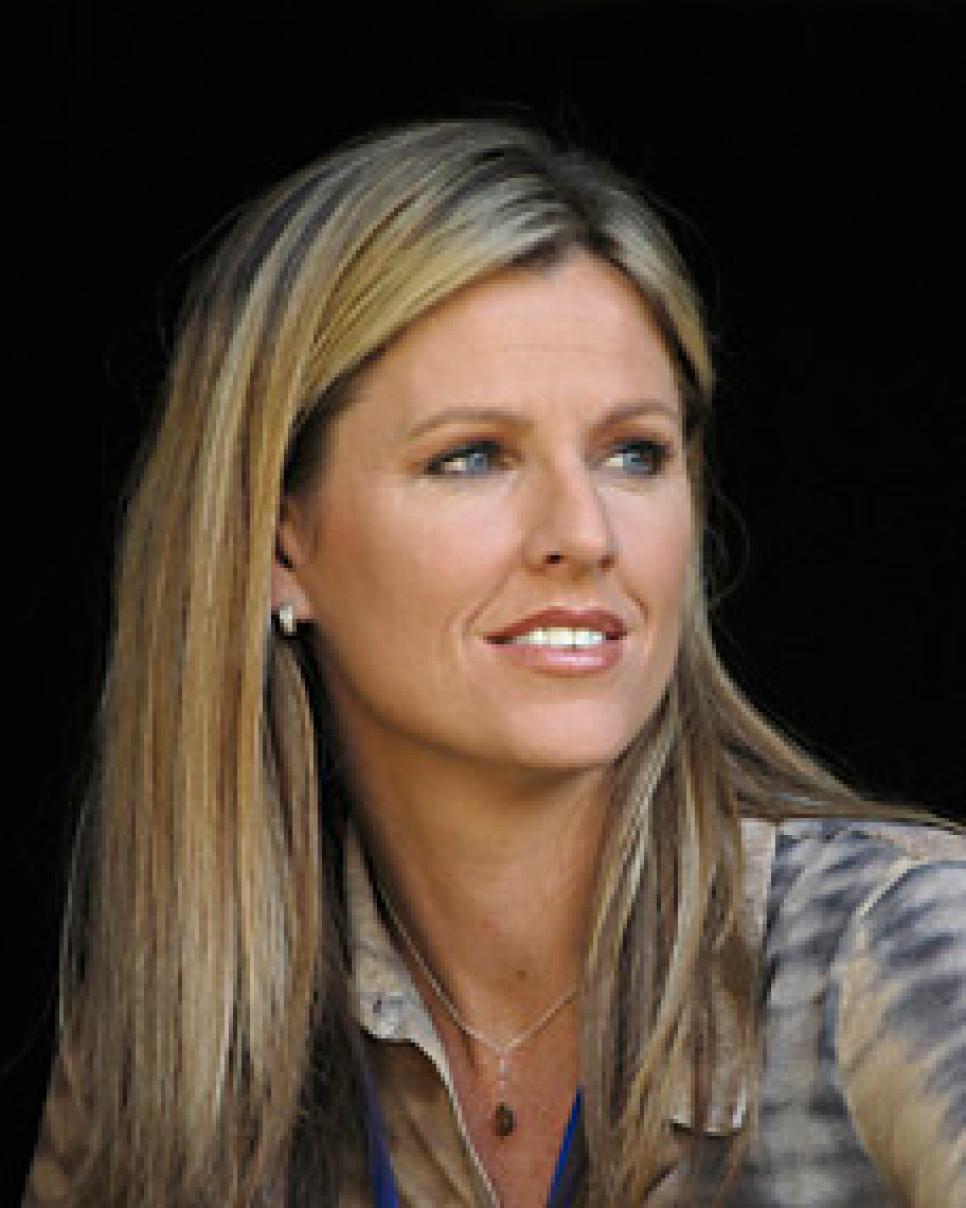News
View From The Bunker

Golf Channel anchor Kelly Tilghman.
I don't know Kelly Tilghman, except to see her at tour events or on Golf Channel's programming. However, I do know there is nothing remotely humorous about the word "lynch," whether it's unwittingly used by a Duke-educated TV golf anchor or an angry mob in a spaghetti western.
That is the least lesson we all should have learned after the fallout from that fateful telecast of the Mercedes-Benz Championship two weeks ago. Tilghman was engaged in a seemingly harmless discussion with Nick Faldo when she suggested young players attempting to challenge world No. 1 Tiger Woods "should lynch him in a back alley."
I want to talk about the word "lynch," because as an African-American I may think about it differently than you. Many golfers rolled their eyes when Rev. Al Sharpton joined the fray, and you may believe it's only political correctness run amok. But there's a reason, even in a society that believes deeply in free speech and independent thought, that certain words are out-of-bounds. Certain words are so hateful and hurtful that they transcend the importance of sport.
Let the word "lynch" linger in your mind. Can you see the image it evokes? A poor soul hanging from a noose tied to a tree, feet flailing in the air. According to Tuskegee University, 3,466 blacks were lynched in the United States from 1882 to 1968. For no other crime than being born black.
Can't imagine it? Some of us can. That's why some of us never speak the word -- not in impolite conversation nor in the privacy of our homes; not even in prayer sessions; and certainly not in jest.
Tilghman apologized to Woods. He accepted. Forgiving the person is easy. Forgiving the word is damn hard. Maybe what disturbs me more than anything, though, is the trivialization that followed.
No racist comment, perceived or real, intentional or otherwise, can be tolerated on public airways. It speaks to the insensitivity and ignorance of certain groups to a dark past in American history -- an era when lynching was a horrific hate crime disguised as social control for a disenfranchised people. Some of us still smart from those wounds.
This incident is also symptomatic of the disrespectful nature of a society that believes it can say anything and escape scrutiny. Racially and sexually derogatory lyrics corrupt our youth; comedy routines routinely degrade individuals and groups; evangelists continually cast swine before pearls. This nation's underbelly doesn't need scratching -- it needs major surgery.
As a son of the South, where lynching carries more significance than any place else, I believe that word is far more egregious than earlier incidents involving Al Campanis, Jimmy "The Greek" Snyder and Don Imus. "Lynch" conjures up the most negative connotations. Violence. Torture. Death.
And this in a game that we would like to hold to the highest standards, even though a closer examination of its history reveals exclusionary practices as well as racial tension. Do you think Hall of Famer Charlie Sifford, also a son of the South, views any reference to lynching as anything but hurtful and disrespectful? In the 1960s he and other black pioneers faced the very real possibility of being lynched while trying to play a game that didn't embrace them, on courses that didn't want them, on a tour that didn't welcome them.
We may close our eyes and wait for the embarrassment to go away, but whether we like it or not, the lesson has been learned again and maybe not for the last time in golf.
McDaniel, a senior writer at Golf Digest, is the author of Uneven Lies: The Heroic Story of African-Americans in Golf.